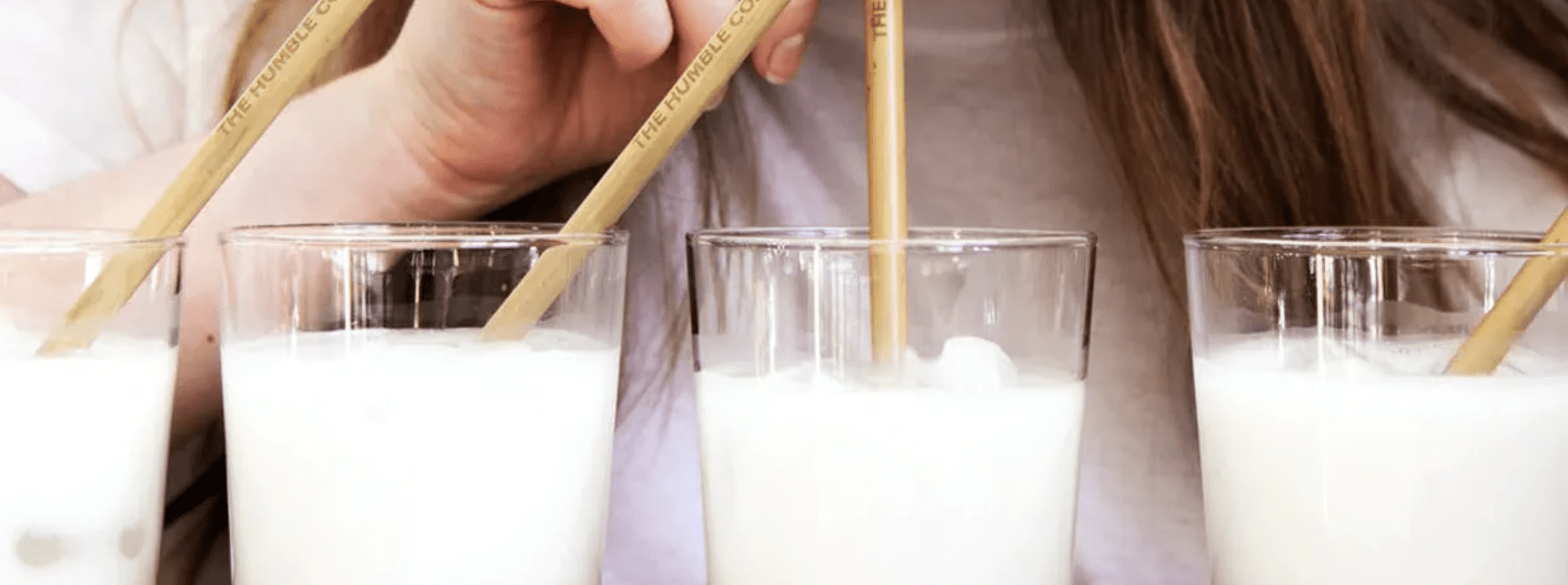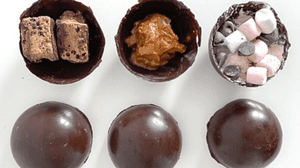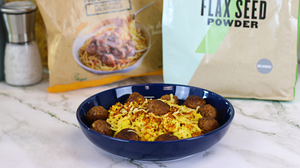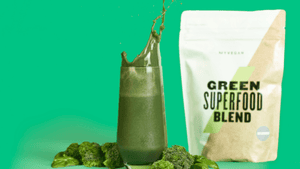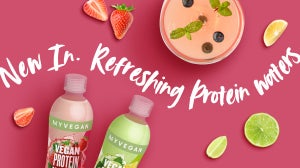
Swedish brand, Dug, is "harnessing the power of potatoes" by launching the world's first potato milk. Available to purchase in select supermarkets and online, you're probably wondering: what are the benefits? and do we really need another plant-based milk? Let's get into it...
So, it seems like 2022 is the year that we can officially crown the humble potato as the single most versatile root vegetable. There's a sentence we never thought we'd type – but you can keep your crispy roasties and creamy mash, triple cooked chips and those warming jacket potatoes, because potato milk is the new kid on the block.
Yep, you heard that right, and no, it’s not a typo. The juice of actual potatoes is set to knock oat milk off the top spot and become everybody’s vegan, dairy-free alternative of choice.
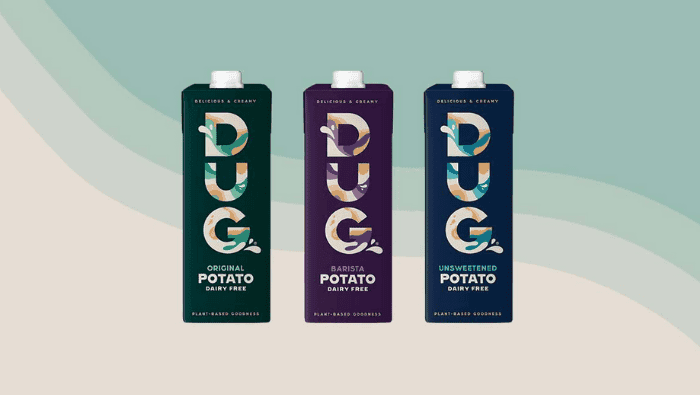
What does it taste like?
A natural first question, because it sounds… interesting. We're picturing that starchy water created when you soak potatoes and the taste comparable to those undercooked potatoes pulled out of the oven when you couldn’t wait any longer for dinner. But we can’t find a bad review and, on the contrary, it’s said to be mild in taste with a creamy texture. Plus, just like its oat-based counterpart, it’s available in three varieties: original, unsweetened and barista – because there’s nothing that sounds more appealing than a latte made with foamy, foamy potato milk, is there?
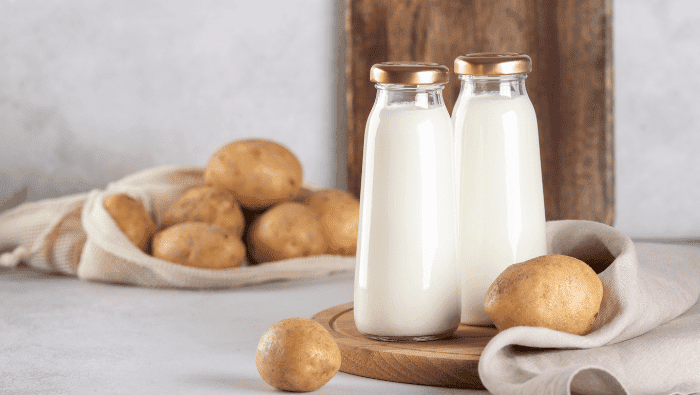
Is it good for you?
Potatoes are full of protein, vitamins, minerals, fibre and antioxidants (as many as blueberries in some varieties). They have a low glycaemic load, so don’t affect your blood sugar as much as pasta or rice. As a plant-based milk, it’s more allergen-friendly than many, with no soy, gluten or nuts and is also low in saturated fats and fortified with folic acid, vitamin D and B12. So in short, yes, very good for you.
Is it better for the planet?
All plant-based milks are vastly more sustainable than dairy milk, but potato milk is shaping up to be the most sustainable yet. The main benefits, as described by Dug, are that:
Growing potatoes are twice as efficient as growing oats in terms of land use
The climate footprint of potato milk is 75% lower than dairy milk
Potatoes also need a lot less water to grow, for example they require 56x less water than almonds
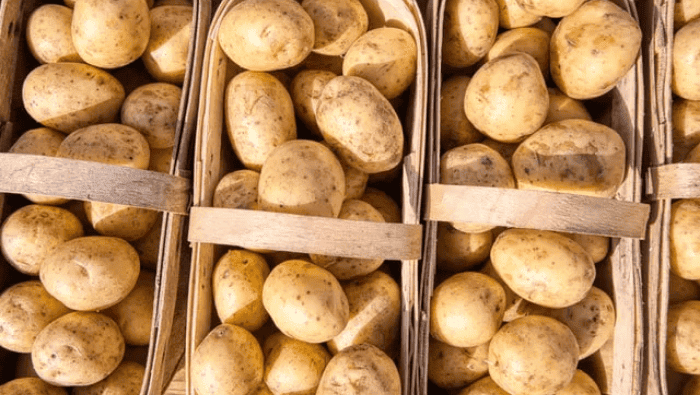
A closer look
It’s important to put these figures into perspective and avoid vilifying almond or oat milk off the back of these findings, which remain great options for reducing your carbon footprint. Using Poore & Nemeck’s 2018 study which compares the environmental impact of different food types - including a comparison of milk options - and adding Dug’s assessment of their potato milk into the visual below, you can see that potato milk performs best on all fronts:
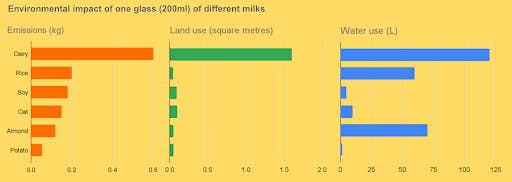
However what this also highlights is that, especially for emissions and land use linked with the production of different milks, the most important step in reducing our diet-related footprint is achieved by removing animal products from our diet.
Food production is responsible for 25% of global emissions so being critical of what we eat is vital, but changes to our diet should be viewed as part of the bigger picture and any steps towards a more plant-based diet should be celebrated. Even if that means sticking with almond milk and accepting a slightly higher water-footprint than the newest plant-based milk, because the reduction in water use from dairy to almond milk is still significant and the wins overall (including health, emissions and land use) are monumental.
In short
Potato milk sounds well worth a try, especially if available at your local shop or if the health attributes would be of particular benefit to you, but don’t throw out your other plant-based milks because they are all still solid improvements on dairy milk.

How to Make Nut Milk at Home from Peanut Butter
Homemade nut milk is a quick and tasty vegan alternative to dairy milk. You can use peanut, almond or cashew nut butter, and it is incredibly easy to make.
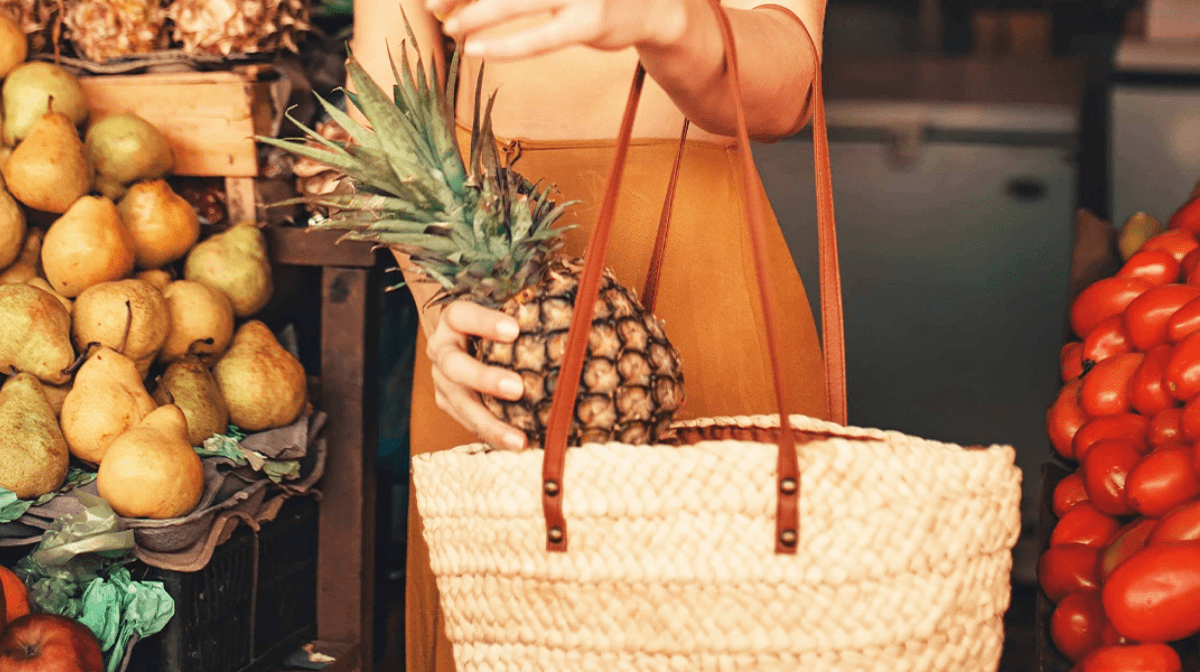
How to Stay Vegan on a Budget
It really doesn’t have to cost the earth.

Related Articles

